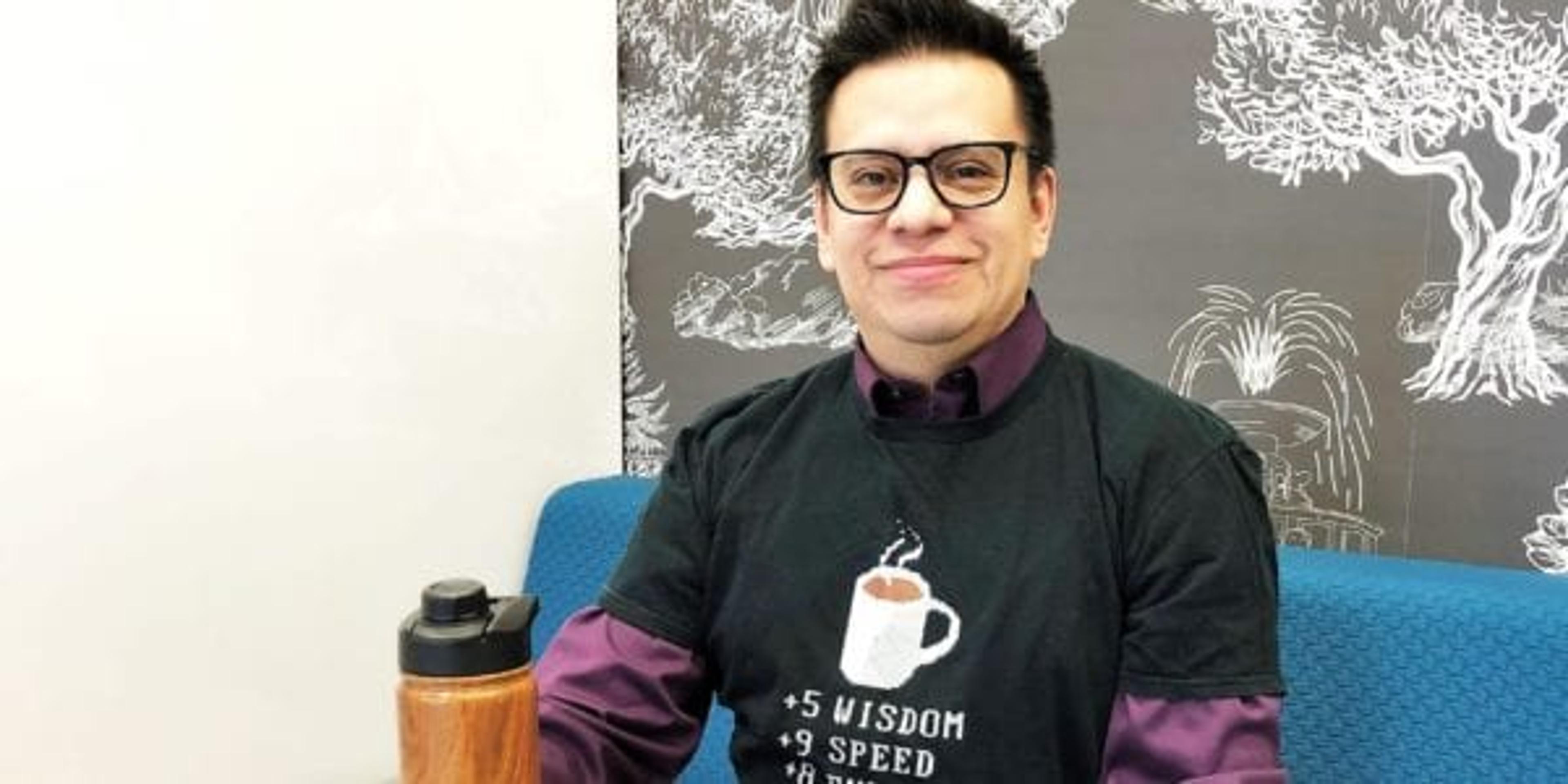One Year Without Caffeine: How it Affected My Mental Health
Amy Barczy
| 3 min read

Meet David Murray.
Last year he quit a decades-long caffeine habit – cold turkey.
This is his story.
—
You could say Murray was addicted to caffeine: he started drinking coffee in college at Eastern Michigan University. As an art major, all the art kids drank coffee. Red Bull wasn’t far behind.
By the time he reached his early 40s, Murray started every workday as a social media strategist at Blue Cross Blue Shield of Michigan with a large iced coffee. If he was really struggling, he chased it with a Five-Hour Energy shot. Every caffeine crash left him wanting more.
As he battled depression and anxiety, caffeine was his crutch.
“Let’s just get some caffeine and power through this,” Murray said of how he was using caffeine to mask the way his mental health was making him feel.
—
One year ago, Murray stopped drinking coffee. He had to: to treat his major depression, he was about to undergo electroconvulsive therapy. It meant stopping all medications – and giving up caffeine. For three months, he underwent shock treatments three days a week. There was no time for morning coffee, and he was hospitalized for several weeks.
When he came back to work in April 2019, Murray decided to challenge himself to give up caffeine for good, and to become more responsible for what he put in his body.
“It queued me up to choose a better lifestyle to support my mental health,” Murray said.
He committed to a more regular exercise routine and to going to bed earlier – by 10 p.m. Switching to water in the morning and making more conscious diet choices have helped him kick caffeine to the curb.
“I never felt like I needed caffeine,” Murray said. “Even the mornings where I felt crummy, it would go away by the afternoon. I realized I needed to take a walk around the building, not sluggify my body with carbs.”
—
As he reflects on his caffeine-fueled life, Murray, now 45, now believes his old lifestyle choices – like staying up too late and eating fast food – were holding him back.
“I don’t know if I ever needed coffee,” Murray said. “I don’t think I would ever be present when I was depressed or using coffee; just jumpy and easily distracted.”
Now Murray focuses on being stoic and present in the moment – something he said he couldn’t do before.
If you enjoyed this article you may also like:
Photo credit: Amy Barczy, Blue Cross Blue Shield of Michigan





